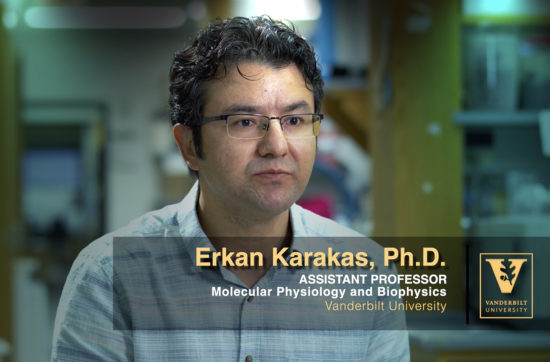NEWS
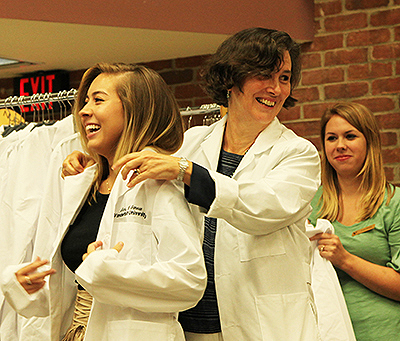
Dear Basic Sciences Research Community,
For the tenth year, we are excited to welcome our new incoming biomedical sciences Ph.D. class to be a part of the Vanderbilt family at our annual Simple Beginnings ceremony on September 4, 2020. Due to the COVID-19 pandemic, the 2020 Simple Beginnings Lab Coat Ceremony will be conducted in a completely virtual format.
While this year may look very different, we are looking forward to providing an afternoon of information, camaraderie, and celebration. In many ways, we hope to make this event more significant and inclusive than ever! We find ourselves in highly unusual circumstances, so there is all the more reason to celebrate our new students along with their families, friends, and loved ones who will join together virtually and participate in this event regardless of their location. And for the first time, many of you in our Vanderbilt community – current graduate students, postdocs, staff, and faculty – can join us in celebrating the big day and welcoming the incoming class into our research family.
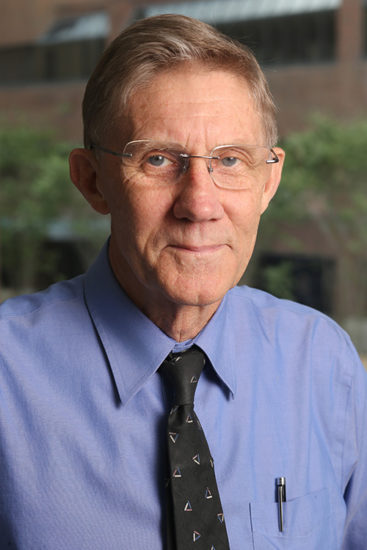
The event will be held on Friday, September 4, with the guest and family activities at 2:00 PM and the lab coat presentation ceremony at 3:30 PM. Please register to join us in celebrating and sending well wishes to the incoming class.
Best,
Roger Chalkley
Associate Dean for Biomedical Research Education and Training
Basic Sciences BoV welcomes new members
 The Board of Visitors of Basic Sciences is made up of experts who act as advisors to the dean and who help the school develop symbiotic relationships with industry, government, private foundations and academic partners, and more. We’d like to welcome the eight new members: Subramaniam Apparsundaram, Robert L. Caldwell, Harold Edward Fleming, Jr., Yiu-Lian Fong, Clayton D. Knox, Laura Jane Niedernhofer, Mace L. Rothenberg, and J. Joshua Smith. The Board of Visitors of Basic Sciences is made up of experts who act as advisors to the dean and who help the school develop symbiotic relationships with industry, government, private foundations and academic partners, and more. We’d like to welcome the eight new members: Subramaniam Apparsundaram, Robert L. Caldwell, Harold Edward Fleming, Jr., Yiu-Lian Fong, Clayton D. Knox, Laura Jane Niedernhofer, Mace L. Rothenberg, and J. Joshua Smith.
Sanders named Protein Society president
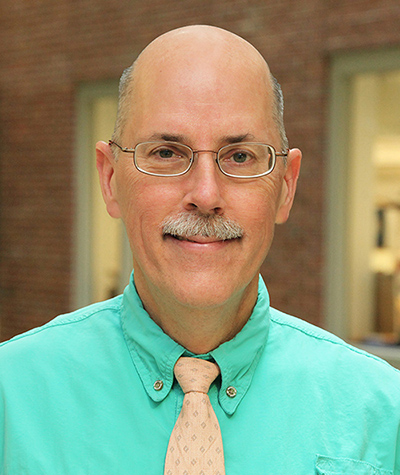 Chuck Sanders (Biochemistry) is now the president-elect of The Protein Society. He will serve as president for three years, during which he will also be the chair of the Executive Council of the organization. Chuck Sanders (Biochemistry) is now the president-elect of The Protein Society. He will serve as president for three years, during which he will also be the chair of the Executive Council of the organization.
AWARDS
Siciliano thrice awarded
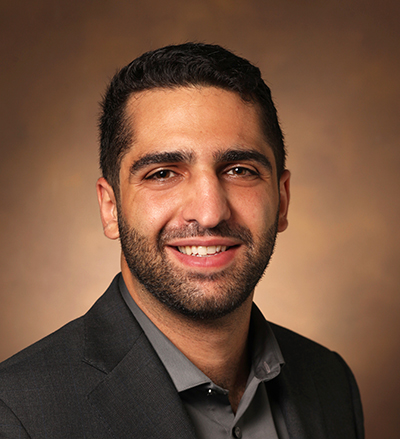 Cody Siciliano (Pharmacology) has recently been recognized with the Fay/Frank Seed Grant from the Brain Research Foundation and the Alkermes Pathways Research Award from the biopharmaceutical company Alkermes. Earlier this year, Siciliano was named a recipient of the Freedman Prize for Exceptional Basic Research from the Brain and Behavior Research Foundation. Cody Siciliano (Pharmacology) has recently been recognized with the Fay/Frank Seed Grant from the Brain Research Foundation and the Alkermes Pathways Research Award from the biopharmaceutical company Alkermes. Earlier this year, Siciliano was named a recipient of the Freedman Prize for Exceptional Basic Research from the Brain and Behavior Research Foundation.
Robertson earns Gilliam Fellowship
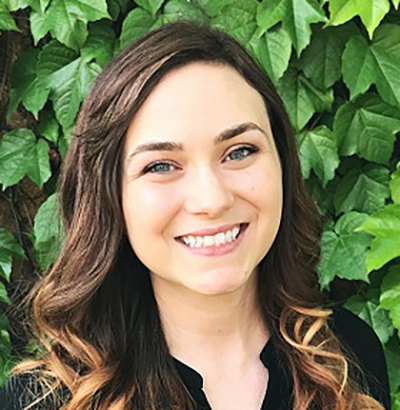 Gabriella Robertson, a graduate student in Cell and Developmental Biology, was announced as a recipient of a 2020 HHMI Gilliam Fellowship for Advanced Study. Along with dissertation advisor Vivian Gama (CDB), Robertson will develop a project to improve inclusive scientific spaces. Gabriella Robertson, a graduate student in Cell and Developmental Biology, was announced as a recipient of a 2020 HHMI Gilliam Fellowship for Advanced Study. Along with dissertation advisor Vivian Gama (CDB), Robertson will develop a project to improve inclusive scientific spaces.
ACS Division of Carbohydrate Chemistry recognizes Townsend
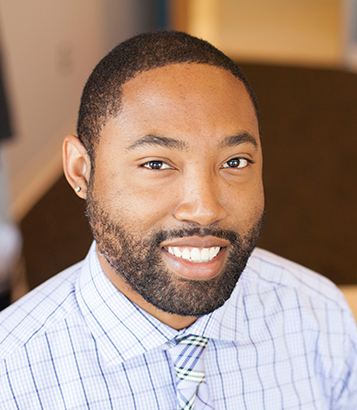 The American Chemical Society has awarded Steven Townsend (Chemistry) the 2021 David Y. Gin New Investigator Award, geared toward investigators who are within seven years of finishing their graduate studies or their postdoctoral training. Townsend will be invited to speak at the annual ACS meeting in San Antonio, Texas, tentatively scheduled for March 2021. The American Chemical Society has awarded Steven Townsend (Chemistry) the 2021 David Y. Gin New Investigator Award, geared toward investigators who are within seven years of finishing their graduate studies or their postdoctoral training. Townsend will be invited to speak at the annual ACS meeting in San Antonio, Texas, tentatively scheduled for March 2021.
Goldblatt Award goes to Kirabo
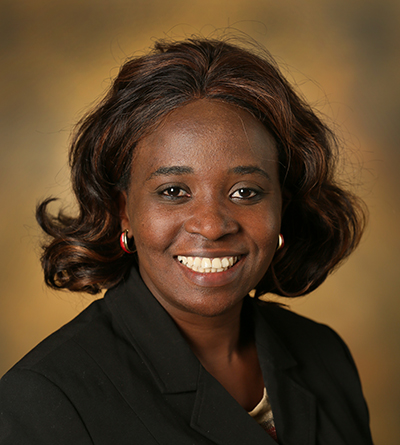 The American Heart Association has awarded Annet Kirabo (Medicine) with the 2020 Harry Goldblatt Award for Early Career Investigators, which recognizes annually an early-career independent investigator who has contributed to the understanding of the causes of hypertension and related cardiovascular disease. The American Heart Association has awarded Annet Kirabo (Medicine) with the 2020 Harry Goldblatt Award for Early Career Investigators, which recognizes annually an early-career independent investigator who has contributed to the understanding of the causes of hypertension and related cardiovascular disease.
Byndloss receives Bergmann Award
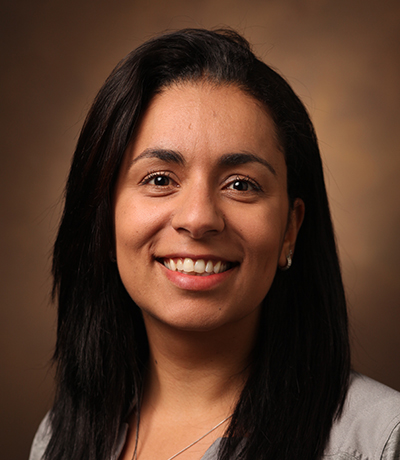 Mariana Byndloss (PMI) recently was awarded the U.S.-Israel Binational Science Foundation’s Professor E.D. Bergmann Award, which is presented to early-career researchers who have recently received BSF grants. The funds may be used by recipients to further their research in any way they choose at any time during the period of their BSF grants. Mariana Byndloss (PMI) recently was awarded the U.S.-Israel Binational Science Foundation’s Professor E.D. Bergmann Award, which is presented to early-career researchers who have recently received BSF grants. The funds may be used by recipients to further their research in any way they choose at any time during the period of their BSF grants.
IES interviews Mchaourab following Silver Medal Award
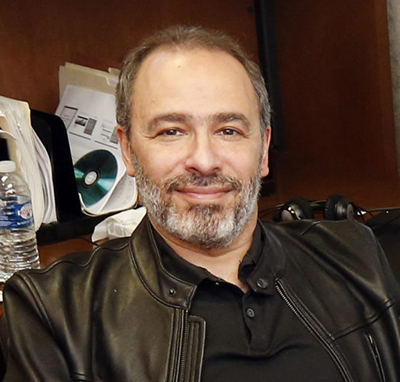 The International EPR (ESR) Society awarded the 2019 IES Silver Medal for Biology/Medicine to Hassane Mchaourab (MPB), and he was recently highlighted in an interview in their latest newsletter (page 6). The International EPR (ESR) Society awarded the 2019 IES Silver Medal for Biology/Medicine to Hassane Mchaourab (MPB), and he was recently highlighted in an interview in their latest newsletter (page 6).
Sutherland Prize awarded to Crowe
 The 2020 Earl Sutherland Prize for Achievement in Research, named in honor of the Nobel laureate and Vanderbilt faculty member, has been awarded to James Crowe (Pediatrics). The 2020 Earl Sutherland Prize for Achievement in Research, named in honor of the Nobel laureate and Vanderbilt faculty member, has been awarded to James Crowe (Pediatrics).
Student and postdoc fellowships
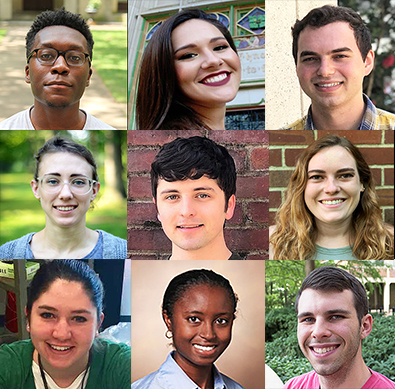 Join us in celebrating this month’s fellowship winners. The recipients and granting agencies are: Demond Williams (Cancer Biology, Barbara Fingleton lab) and Ariana von Lersner (Cancer Biology, Andries Zijlstra lab), National Cancer Institute; Daniel Sack (Epidemiology, Carolyn Audet lab) and Bridget Collins (Neuroscience, Jeffrey Neul lab), National Institute of Mental Health; Connor Beebout (Microbe-Host Interactions, Maria Hadjifrangiskou lab), National Institute of Allergy and Infectious Diseases; Nikki Rodgers (CDB, Marija Zanic lab) and Brenna Appleton (MPI, Amy Major lab), National Heart, Lung and Blood Institute; Ashley Christensen (MPB, Maureen Gannon lab), National Institute of Diabetes and Digestive and Kidney Diseases; and Dylan Ritter (CDB, Ela Knapik lab), National Institute of Dental and Craniofacial Research. Join us in celebrating this month’s fellowship winners. The recipients and granting agencies are: Demond Williams (Cancer Biology, Barbara Fingleton lab) and Ariana von Lersner (Cancer Biology, Andries Zijlstra lab), National Cancer Institute; Daniel Sack (Epidemiology, Carolyn Audet lab) and Bridget Collins (Neuroscience, Jeffrey Neul lab), National Institute of Mental Health; Connor Beebout (Microbe-Host Interactions, Maria Hadjifrangiskou lab), National Institute of Allergy and Infectious Diseases; Nikki Rodgers (CDB, Marija Zanic lab) and Brenna Appleton (MPI, Amy Major lab), National Heart, Lung and Blood Institute; Ashley Christensen (MPB, Maureen Gannon lab), National Institute of Diabetes and Digestive and Kidney Diseases; and Dylan Ritter (CDB, Ela Knapik lab), National Institute of Dental and Craniofacial Research.
HIGHLIGHTS
ASPIRE Annual Report
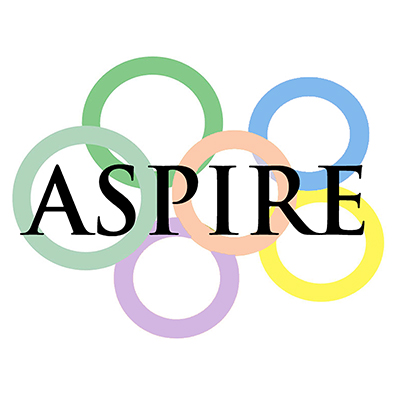 Exactly what kind of career development and exploration does the ASPIRE Program provide? Who benefits from these programs? ASPIRE has just published its annual report—check it out and learn what it can do for you or the students and postdocs in your lab. Exactly what kind of career development and exploration does the ASPIRE Program provide? Who benefits from these programs? ASPIRE has just published its annual report—check it out and learn what it can do for you or the students and postdocs in your lab.
VSSA looks back at a successful summer
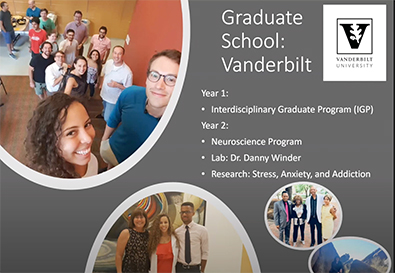
After the in-person Vanderbilt Summer Science Academy program was cancelled this summer, Vanderbilt researchers and physicians-in-training came together to give aspiring graduate and medical students a view of the biomedical community—as well as to help them build an identity in science—through the Virtual VSSA program. Over 100 undergraduates attended each seminar. This program was led by Christina Keeton, Beth Bowman, and Kendra Oliver, and could not have happened without the help of the numerous faculty and student volunteers involved.
How to science with kids at home
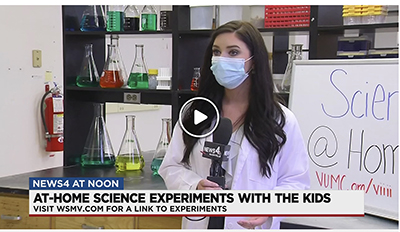 If you have kids at home that you need to engage and entertain, try out some of these fun science experiments demoed by grad student Monique Bennett (PMI, James Crowe lab) and postdoc Will Beavers (Eric Skaar lab) on Channel News 4 Nashville. If you have kids at home that you need to engage and entertain, try out some of these fun science experiments demoed by grad student Monique Bennett (PMI, James Crowe lab) and postdoc Will Beavers (Eric Skaar lab) on Channel News 4 Nashville.
Ortolano writes for STAT
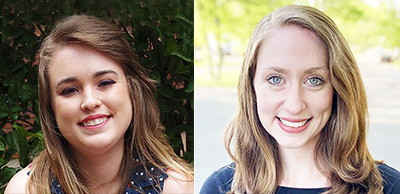 Graduate student Natalya Ortolano (CDB, Vivian Gama lab) spent the summer as an AAAS Mass Media Fellow writing for STAT. Check out her writing and learn something sciency that might or might not be related to your field of study! Ortolano and VISE postdoc Allison Whitten represented Vanderbilt in this year’s cohort of Mass Media Fellows. Graduate student Natalya Ortolano (CDB, Vivian Gama lab) spent the summer as an AAAS Mass Media Fellow writing for STAT. Check out her writing and learn something sciency that might or might not be related to your field of study! Ortolano and VISE postdoc Allison Whitten represented Vanderbilt in this year’s cohort of Mass Media Fellows.
Interview with residential faculty Hasty
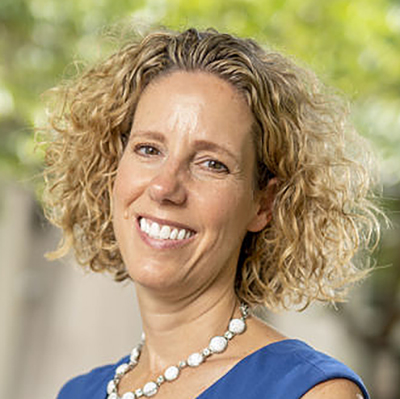 Did you know that our own Assistant Dean for Faculty Development Alyssa Hasty lives on campus? She’s a residential faculty at the undergrad dorm Murray House. Get to know her through this interview. Did you know that our own Assistant Dean for Faculty Development Alyssa Hasty lives on campus? She’s a residential faculty at the undergrad dorm Murray House. Get to know her through this interview.
Vanderbilt Magazine highlights Warren Center
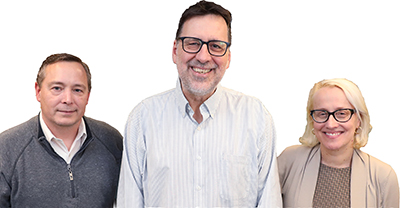 The most recent issue of the university’s quarterly magazine featured the dedicated work by researchers at the Warren Center for Neuroscience Drug Discovery. It takes readers through the history and significance of the recent phase I testing of VU319, a drug developed as a treatment candidate against Alzheimer’s disease. The most recent issue of the university’s quarterly magazine featured the dedicated work by researchers at the Warren Center for Neuroscience Drug Discovery. It takes readers through the history and significance of the recent phase I testing of VU319, a drug developed as a treatment candidate against Alzheimer’s disease.
Final chapter of the BEST adventure
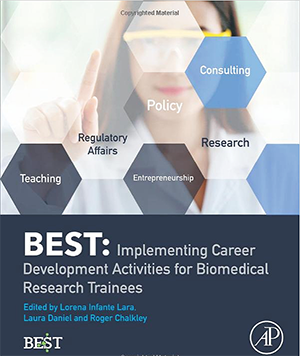 Vanderbilt’s ASPIRE program was initially funded through a nonrenewable Broadening Experiences in Scientific Training grant from the NIH. This fall, the funding expired for the last of the 17 awarded institutions, but many of them, like ASPIRE will continue with institutional support. Their experiences—including lessons learned—were reported in a book published this year. Vanderbilt’s ASPIRE program was initially funded through a nonrenewable Broadening Experiences in Scientific Training grant from the NIH. This fall, the funding expired for the last of the 17 awarded institutions, but many of them, like ASPIRE will continue with institutional support. Their experiences—including lessons learned—were reported in a book published this year.
NEW DISCOVERIES
Substance abuse complicated by COVID-19
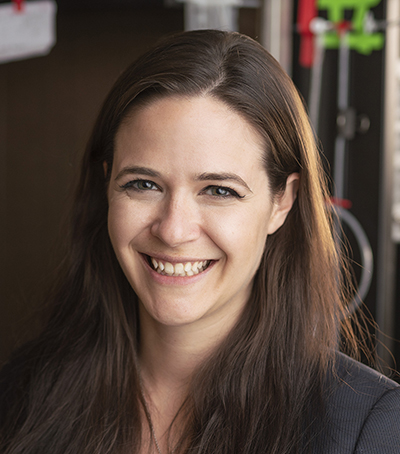
In an interview with NewsChannel 5, Erin Calipari (Pharmacology) relates her research on substance use disorders with the observed increase in opioid overdoses during the pandemic nationwide.  Separately, a paper Calipari published along with Cody Siciliano reveals differences in how male and female mice respond to anticipated rewards and punishments, with implications for the treatment of psychiatric diseases. Separately, a paper Calipari published along with Cody Siciliano reveals differences in how male and female mice respond to anticipated rewards and punishments, with implications for the treatment of psychiatric diseases.
How cells adapt to their environment
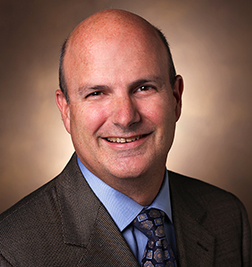 John York (Biochemistry) and his lab recently found that the bifunctional enzyme Vip1 can create and break down inositol diphosphates to help cells adapt to their environments. John York (Biochemistry) and his lab recently found that the bifunctional enzyme Vip1 can create and break down inositol diphosphates to help cells adapt to their environments.
Pathfinding behavior mediated by exosomes
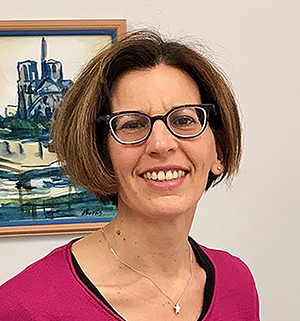 The lab of Alissa Weaver (CDB) has developed a novel technique for visualizing exosomes in living organisms, helping her lab document new insights about exosome-mediated cellular migration. The lab of Alissa Weaver (CDB) has developed a novel technique for visualizing exosomes in living organisms, helping her lab document new insights about exosome-mediated cellular migration.
Targeting metastatic melanoma
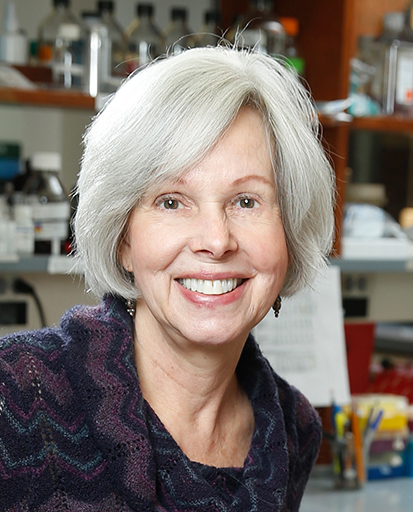 The Ann Richmond (Pharmacology) lab evaluated KRT-232, alone or as part of a combination, and determined that it’s a promising therapy for metastatic melanoma that does not respond to the standard therapy with dabrafenib and trametinib. The Ann Richmond (Pharmacology) lab evaluated KRT-232, alone or as part of a combination, and determined that it’s a promising therapy for metastatic melanoma that does not respond to the standard therapy with dabrafenib and trametinib.
Defining the components of the IMAC
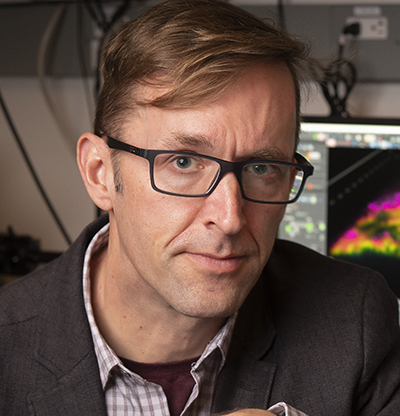 A recent paper from the lab of Matt Tyska (CDB), which identified the small EF-hand protein calmodulin-like protein 4 as a component of the intermicrovillar adhesion complex, was featured on the cover of the Journal of Biological Chemistry. A recent paper from the lab of Matt Tyska (CDB), which identified the small EF-hand protein calmodulin-like protein 4 as a component of the intermicrovillar adhesion complex, was featured on the cover of the Journal of Biological Chemistry.
Maintaining ERα homeostasis
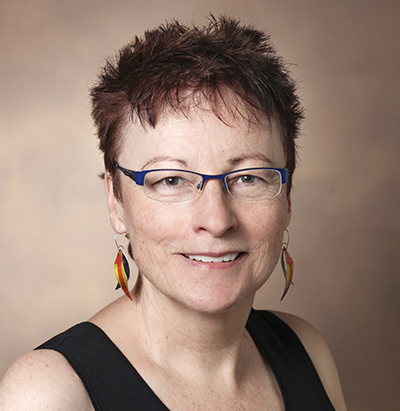 According to the lab of Deborah Lannigan (PMI), RSK2 is key to regulating estrogen homeostasis through estrogen receptor α. According to the lab of Deborah Lannigan (PMI), RSK2 is key to regulating estrogen homeostasis through estrogen receptor α.
Fighting fibrotic diseases
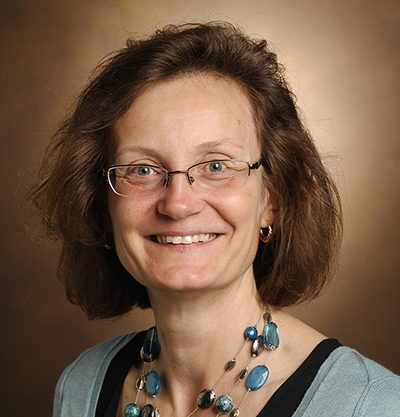 Ambra Pozzi (Medicine) and colleagues found that integrin and EGFR regulate collagen production partly by translocating the protein FUS to the nucleus. Mutations in FUS can damage nerve cells and cause amyotrophic lateral sclerosis. Ambra Pozzi (Medicine) and colleagues found that integrin and EGFR regulate collagen production partly by translocating the protein FUS to the nucleus. Mutations in FUS can damage nerve cells and cause amyotrophic lateral sclerosis.
STING activation helps defeat neuroblastoma
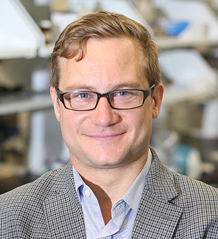 Neuroblastomas are notoriously impregnable to immune cells, but the lab of John Wilson (Chemical and Biomolecular Engineering) found a way to make neuroblastoma tumors more immunogenic and susceptible to immune checkpoint blockade therapy by activating the STING pathway. Neuroblastomas are notoriously impregnable to immune cells, but the lab of John Wilson (Chemical and Biomolecular Engineering) found a way to make neuroblastoma tumors more immunogenic and susceptible to immune checkpoint blockade therapy by activating the STING pathway.
Discovery of a resistance-resistant antibiotic
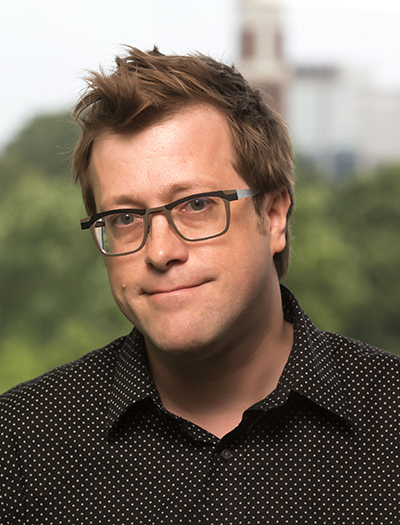
Brian Bachmann’s (Chemistry) group recently discovered a soil antibiotic that targets two separate bacterial targets, thereby reducing the probability that a bacterium will develop defenses against both.
Nonsense mediated mRNA decay targets viruses
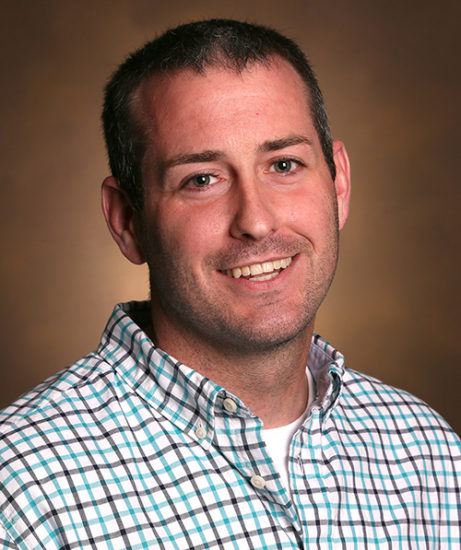 NMD functions as a quality-control mechanism designed to regulate mRNA levels in host cells, but the lab of John Karijolich (PMI) has determined that it also serves an antiviral purpose. NMD functions as a quality-control mechanism designed to regulate mRNA levels in host cells, but the lab of John Karijolich (PMI) has determined that it also serves an antiviral purpose.
Targeting mTORC1
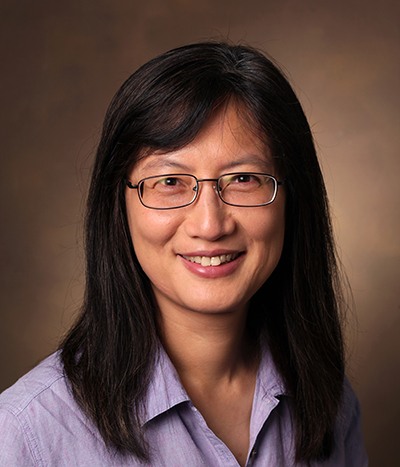 Work from the Jin Chen (Medicine) lab found that inhibiting mTORC1 can help normalize blood vessels, that tend to be leaky and dysfunctional in tumors. Work from the Jin Chen (Medicine) lab found that inhibiting mTORC1 can help normalize blood vessels, that tend to be leaky and dysfunctional in tumors.
Targeting a T4SS in H. pylori
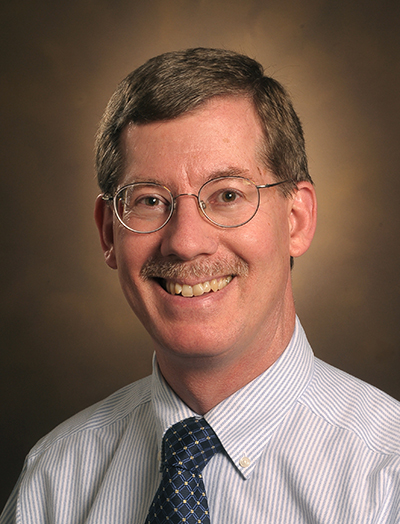 Tim Cover’s (Medicine) lab has developed methods to control Cag type IV secretion system activity in Helicobacter pylori, which is associated with a higher risk of gastric cancer. Tim Cover’s (Medicine) lab has developed methods to control Cag type IV secretion system activity in Helicobacter pylori, which is associated with a higher risk of gastric cancer.
Hidden reservoir for UTI bacteria
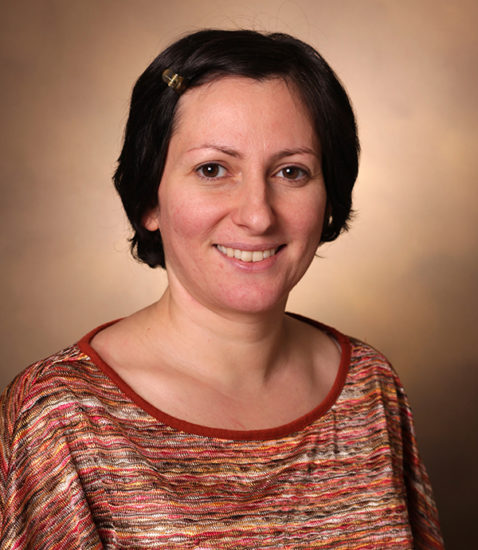 The lab of Maria Hadjifrangiskou (PMI) has found that Escherichia coli can use vaginal cells as a reservoir, thereby helping them evade antibiotics and leading to recurrent urinary tract infections. The lab of Maria Hadjifrangiskou (PMI) has found that Escherichia coli can use vaginal cells as a reservoir, thereby helping them evade antibiotics and leading to recurrent urinary tract infections.
Antibodies against MARV, alphaviruses
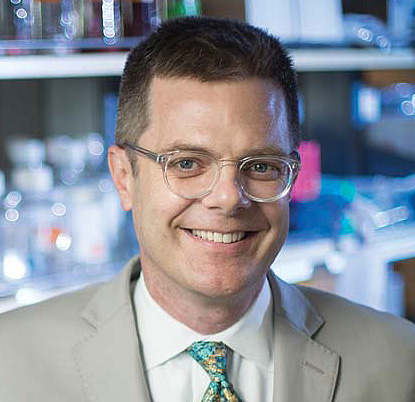 The lab of James Crowe found two non-neutralizing antibodies against the Marburg virus that nonetheless help clear infection. In a separate paper, his lab identified antibodies that block infection by alphaviruses, which include chikungunya, Mayaro, Ross River, Sagiyama, Getah and O’nyong’nyong, among others. The lab of James Crowe found two non-neutralizing antibodies against the Marburg virus that nonetheless help clear infection. In a separate paper, his lab identified antibodies that block infection by alphaviruses, which include chikungunya, Mayaro, Ross River, Sagiyama, Getah and O’nyong’nyong, among others.
Finding a treatment for atherosclerosis
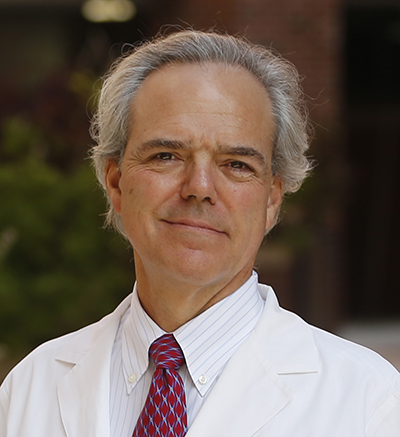 MacRae Linton (Medicine) led a collaboration that found a small-molecule “scavenger” that reduces inflammation and formation of atherosclerotic plaque in blood vessels in mice and could lead to a new approach for treating atherosclerosis in humans. MacRae Linton (Medicine) led a collaboration that found a small-molecule “scavenger” that reduces inflammation and formation of atherosclerotic plaque in blood vessels in mice and could lead to a new approach for treating atherosclerosis in humans.
| ![CAS - Basic Sciences - Internal E-Newsletter [Vanderbilt University]](https://cdn.vanderbilt.edu/vu-URL/wp-content/uploads/sites/119/2021/04/19142723/basically-speaking-banner-04-2021.jpg)


 The Board of Visitors of Basic Sciences is made up of experts who act as advisors to the dean and who help the school develop symbiotic relationships with industry, government, private foundations and academic partners, and more. We’d like to welcome the
The Board of Visitors of Basic Sciences is made up of experts who act as advisors to the dean and who help the school develop symbiotic relationships with industry, government, private foundations and academic partners, and more. We’d like to welcome the  Chuck Sanders (Biochemistry) is now the
Chuck Sanders (Biochemistry) is now the  Cody Siciliano (Pharmacology) has
Cody Siciliano (Pharmacology) has  Gabriella Robertson, a graduate student in Cell and Developmental Biology, was
Gabriella Robertson, a graduate student in Cell and Developmental Biology, was  The American Chemical Society has awarded Steven Townsend (Chemistry) the 2021
The American Chemical Society has awarded Steven Townsend (Chemistry) the 2021  The American Heart Association has
The American Heart Association has  Mariana Byndloss (PMI) recently was awarded the U.S.-Israel
Mariana Byndloss (PMI) recently was awarded the U.S.-Israel  The
The  The 2020 Earl Sutherland Prize for Achievement in Research, named in honor of the Nobel laureate and Vanderbilt faculty member,
The 2020 Earl Sutherland Prize for Achievement in Research, named in honor of the Nobel laureate and Vanderbilt faculty member,  Join us in celebrating this month’s fellowship winners. The recipients and granting agencies are: Demond Williams (Cancer Biology, Barbara Fingleton lab) and Ariana von Lersner (Cancer Biology, Andries Zijlstra lab), National Cancer Institute; Daniel Sack (Epidemiology, Carolyn Audet lab) and Bridget Collins (Neuroscience, Jeffrey Neul lab), National Institute of Mental Health; Connor Beebout (Microbe-Host Interactions, Maria Hadjifrangiskou lab), National Institute of Allergy and Infectious Diseases; Nikki Rodgers (CDB, Marija Zanic lab) and Brenna Appleton (MPI, Amy Major lab), National Heart, Lung and Blood Institute; Ashley Christensen (MPB, Maureen Gannon lab), National Institute of Diabetes and Digestive and Kidney Diseases; and Dylan Ritter (CDB, Ela Knapik lab), National Institute of Dental and Craniofacial Research.
Join us in celebrating this month’s fellowship winners. The recipients and granting agencies are: Demond Williams (Cancer Biology, Barbara Fingleton lab) and Ariana von Lersner (Cancer Biology, Andries Zijlstra lab), National Cancer Institute; Daniel Sack (Epidemiology, Carolyn Audet lab) and Bridget Collins (Neuroscience, Jeffrey Neul lab), National Institute of Mental Health; Connor Beebout (Microbe-Host Interactions, Maria Hadjifrangiskou lab), National Institute of Allergy and Infectious Diseases; Nikki Rodgers (CDB, Marija Zanic lab) and Brenna Appleton (MPI, Amy Major lab), National Heart, Lung and Blood Institute; Ashley Christensen (MPB, Maureen Gannon lab), National Institute of Diabetes and Digestive and Kidney Diseases; and Dylan Ritter (CDB, Ela Knapik lab), National Institute of Dental and Craniofacial Research. Exactly what kind of career development and exploration does the ASPIRE Program provide? Who benefits from these programs? ASPIRE has just published its
Exactly what kind of career development and exploration does the ASPIRE Program provide? Who benefits from these programs? ASPIRE has just published its 
 If you have kids at home that you need to engage and entertain, try out some of these fun science experiments demoed by grad student Monique Bennett (PMI, James Crowe lab) and postdoc Will Beavers (Eric Skaar lab) on
If you have kids at home that you need to engage and entertain, try out some of these fun science experiments demoed by grad student Monique Bennett (PMI, James Crowe lab) and postdoc Will Beavers (Eric Skaar lab) on  Graduate student Natalya Ortolano (CDB, Vivian Gama lab) spent the summer as an
Graduate student Natalya Ortolano (CDB, Vivian Gama lab) spent the summer as an  Did you know that our own Assistant Dean for Faculty Development Alyssa Hasty lives on campus? She’s a residential faculty at the undergrad dorm Murray House. Get to know her through
Did you know that our own Assistant Dean for Faculty Development Alyssa Hasty lives on campus? She’s a residential faculty at the undergrad dorm Murray House. Get to know her through  The most recent issue of the university’s quarterly magazine featured the
The most recent issue of the university’s quarterly magazine featured the  Vanderbilt’s ASPIRE program was initially funded through a nonrenewable Broadening Experiences in Scientific Training grant from the NIH. This fall, the funding expired for the last of the 17 awarded institutions, but many of them, like ASPIRE will continue with institutional support. Their experiences—including lessons learned—were reported in a
Vanderbilt’s ASPIRE program was initially funded through a nonrenewable Broadening Experiences in Scientific Training grant from the NIH. This fall, the funding expired for the last of the 17 awarded institutions, but many of them, like ASPIRE will continue with institutional support. Their experiences—including lessons learned—were reported in a 
 John York (Biochemistry) and his lab recently found that the
John York (Biochemistry) and his lab recently found that the  The lab of Alissa Weaver (CDB) has developed a
The lab of Alissa Weaver (CDB) has developed a  The Ann Richmond (Pharmacology) lab evaluated KRT-232, alone or as part of a combination, and determined that it’s a
The Ann Richmond (Pharmacology) lab evaluated KRT-232, alone or as part of a combination, and determined that it’s a  A recent
A recent  According to the lab of Deborah Lannigan (PMI), RSK2 is key to regulating
According to the lab of Deborah Lannigan (PMI), RSK2 is key to regulating  Ambra Pozzi (Medicine) and colleagues found that integrin and EGFR regulate collagen production partly by
Ambra Pozzi (Medicine) and colleagues found that integrin and EGFR regulate collagen production partly by  Neuroblastomas are notoriously impregnable to immune cells, but the lab of John Wilson (Chemical and Biomolecular Engineering)
Neuroblastomas are notoriously impregnable to immune cells, but the lab of John Wilson (Chemical and Biomolecular Engineering) 
 NMD functions as a quality-control mechanism designed to regulate mRNA levels in host cells, but the lab of John Karijolich (PMI) has determined that it also serves an
NMD functions as a quality-control mechanism designed to regulate mRNA levels in host cells, but the lab of John Karijolich (PMI) has determined that it also serves an  Work from the Jin Chen (Medicine) lab found that
Work from the Jin Chen (Medicine) lab found that  Tim Cover’s (Medicine) lab has developed methods to
Tim Cover’s (Medicine) lab has developed methods to  The lab of Maria Hadjifrangiskou (PMI) has found that Escherichia coli can use
The lab of Maria Hadjifrangiskou (PMI) has found that Escherichia coli can use  The lab of James Crowe found two
The lab of James Crowe found two  MacRae Linton (Medicine) led a collaboration that found a
MacRae Linton (Medicine) led a collaboration that found a 
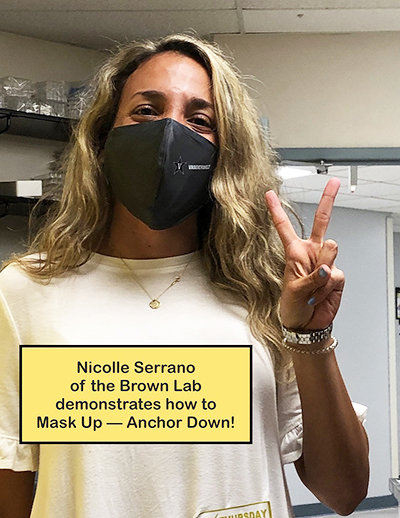




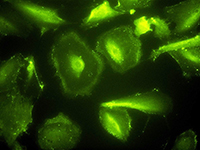 Graduate student Amy Stark (Pharmacology, John Penn lab) has been working on optimizing the growth conditions of retinal pigment epithelial cells. Although she expected to find an even monolayer of cells when she looked under the microscope, she instead found isolated cells in the shape of—of all things—
Graduate student Amy Stark (Pharmacology, John Penn lab) has been working on optimizing the growth conditions of retinal pigment epithelial cells. Although she expected to find an even monolayer of cells when she looked under the microscope, she instead found isolated cells in the shape of—of all things—

